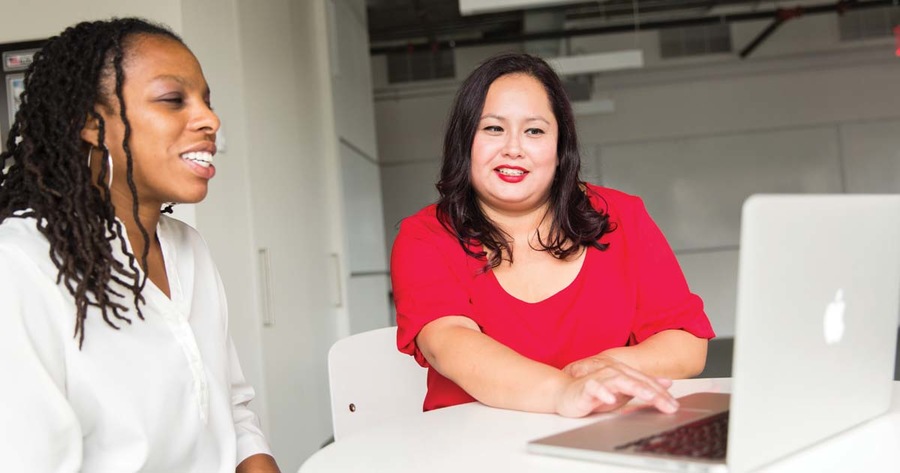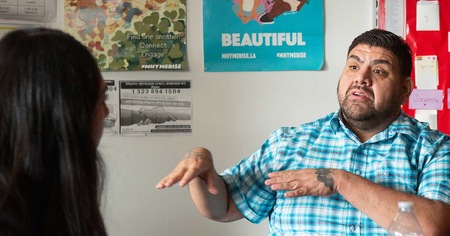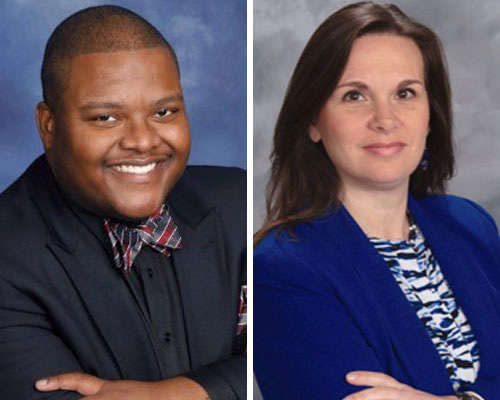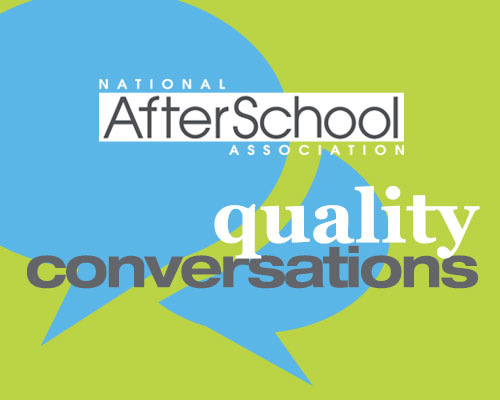This is not a pity-driven posture; instead, it grounds empathy in words and deeds that expect the practitioner/youth developer to listen, ask open-ended questions with sensitivity, and employ global thinking while navigating place and space. When working with youth, these professionals are expected to demonstrate skills that model and support attitudes and behaviors that do not bear sorrow for youth, but primarily listen and learn from them with compassion and understanding.
Think about your most recent encounter with a young person. How experienced are they at navigating the world, making decisions, and offering influence posted out and streamed in at the speed of a "like" or "click"? Since 2016, the Y has renewed its youth strategy to focus on character development with youth by working with practitioners/youth developers—staff and volunteers—in its Character Development Learning Institute (CDLI). Through a developed continuum of competency centered on five practice areas—empathy, for example—coaching and assessing excellence in action is explicit and purposeful, rather than accidental and happenstance. When coaching for excellence, we have learned you cannot "oops" your way into it.
Empathy leaders curating empathy learners via youth-to-youth and adult-to-youth interactions have to practice and be coached to help young people discover their voice, resolve conflicts peacefully, and demonstrate care and concern for themselves and others. The Y of Central Maryland's New Horizon II Summer Enrichment offers examples of this practicing and coaching. Upon entering the site, one finds a sign on the door reading, "At the Y, we don't ask who you are or where you came from, we ask instead who you want to be and where you want to go." Empathy is front and center in youth-to-youth, adult-to-adult, and adult-to-youth encounters. Michelle Becote Jackson, Chief Social Responsibility Officer states:
"Our associates, first and foremost, understand that an extra layer of compassion and support are required. To that end, creative methods of sharing and engaging are introduced to the youth to allow them to share uniquely and with dignity. This aspect of the program encourages empathy, teamwork, and appreciation. Additionally, students and associates dine together at both breakfast and lunch times. This time not only serves to address the specific basic need of the students, but also serves as a time for students and associates to freely interact and have open and engaging conversations with one another. What we've discovered is that the burdens most of these young people have encountered have not been carried by most adults let alone teenagers!"
Youth developers must be empathy leaders. This is not easy and requires the intersection of head and heart—expert skills in youth and child development combined with the passion and will to work with all youth, from wherever and however they come.
In CDLI, we review organizational systems, program design, and personal acumen, and examine the organization's capacity for designing and implementing high-quality programs. Moreover, as empathy is socialized, practitioners are challenged to transfer what they have learned to different settings and translate its relevance to what they do, oversee, and resource. During the coaching process, application and translation invoke more questions than answers: Where do we begin? Are we ready? How do you know?
To respond and make meaning of the answers, begin with developing a common agenda for empathy: How are stakeholders aware of and in what medium do they provide feedback on a shared vision for prioritizing empathy?
Assess the backbone support and how empathy is represented (or not) within the organization in both words and deeds. Ask, Now what? Are we there yet? How do we know we have made progress? Checking in with others and continuously improving is empathy in action. Ideally, the coaching relationship evolves into stewardship of the humanity of an organization's policies, practices, and procedures.
Our call to action as empathy leaders is to develop character in young people early and equip youth to succeed in work and life. The YMCA through five adult practices has heeded this call and taken measures to resource and systemize this charge in principle and practice. Doing so increases positive life outcomes by reducing unhealthy conflict, decreasing negative encounters with the judicial system and mitigating unmanaged mental health needs (Shallcross, 2015).
In the words of the rabbinical sage, Hillel the Elder, "If not now, when? If not you, who?"
Written by NAA Executive members Tasha Franklin Johnson, Ph.D. Senior Director, Character Development Learning Institute, YMCA of the USA; Aasha Joshi, Ph.D., Director of Research and Evaluation, YMCA of the USA; and Derryck Fletcher, Senior Vice President, Youth Development, The Y in Central Maryland.
This article originally appeared in the Summer 2020 issue of AfterSchool Today.




